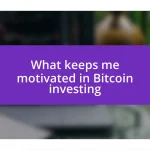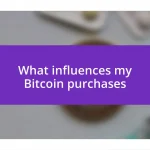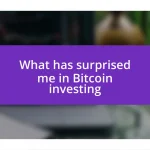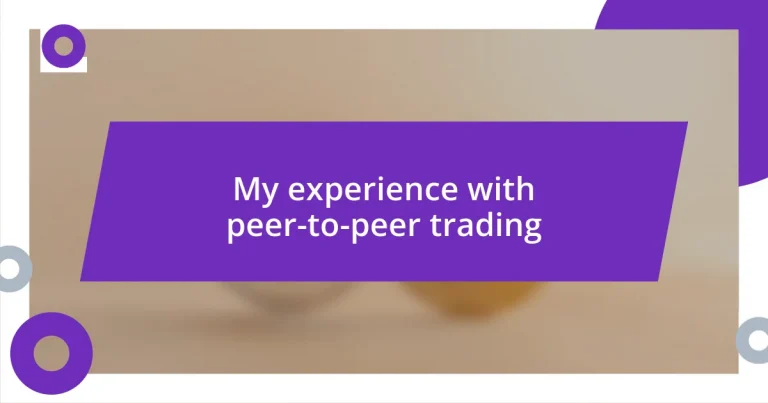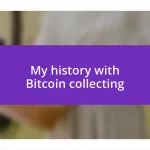Key takeaways:
- Peer-to-peer trading fosters personal connections and community, enhancing the trading experience beyond mere transactions.
- Choosing a secure platform impacts trading safety; researching user reviews and security features is essential for a positive experience.
- Effective trading strategies involve timing, relationship-building, and clear communication, which can lead to better deals and memorable exchanges.
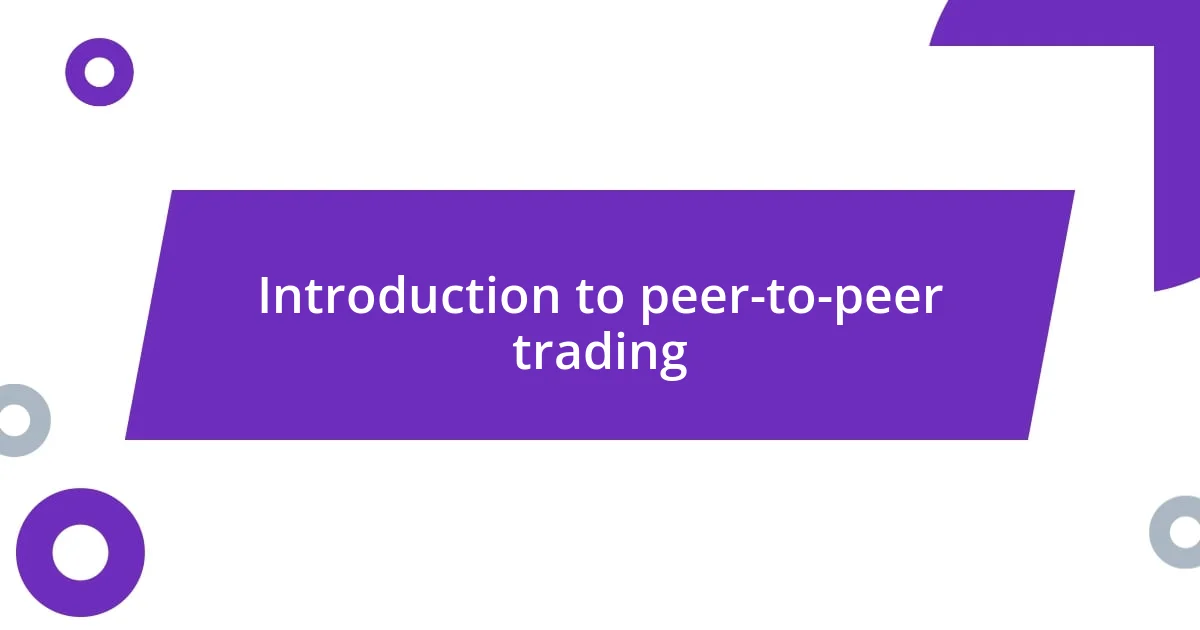
Introduction to peer-to-peer trading
Peer-to-peer trading, often abbreviated as P2P trading, has transformed how we exchange goods and services in today’s digital landscape. For me, the first time I dabbled in P2P, it felt akin to stepping into a marketplace where everyone was both a seller and a buyer, and trust was the currency. Can you imagine how thrilling it was to engage directly with others, bypassing traditional intermediaries?
As I navigated this new trading model, I realized it wasn’t just about the transactions but also the connections I formed along the way. Each interaction was a little story—whether I was bartering a vinyl record for a vintage book or trading tech gadgets with a fellow enthusiast, there was a sense of community that invigorated the experience. Have you experienced that kind of connection while trading?
P2P trading opens up opportunities that traditional trading methods often overlook. The flexibility it offers is remarkable. I still remember a particular moment when I found a rare collectible through a local P2P platform. It wasn’t just about acquiring the item; it was the excitement of negotiating directly with the seller, sharing our passions, and discussing the item’s backstory. That personal touch makes all the difference, don’t you think?
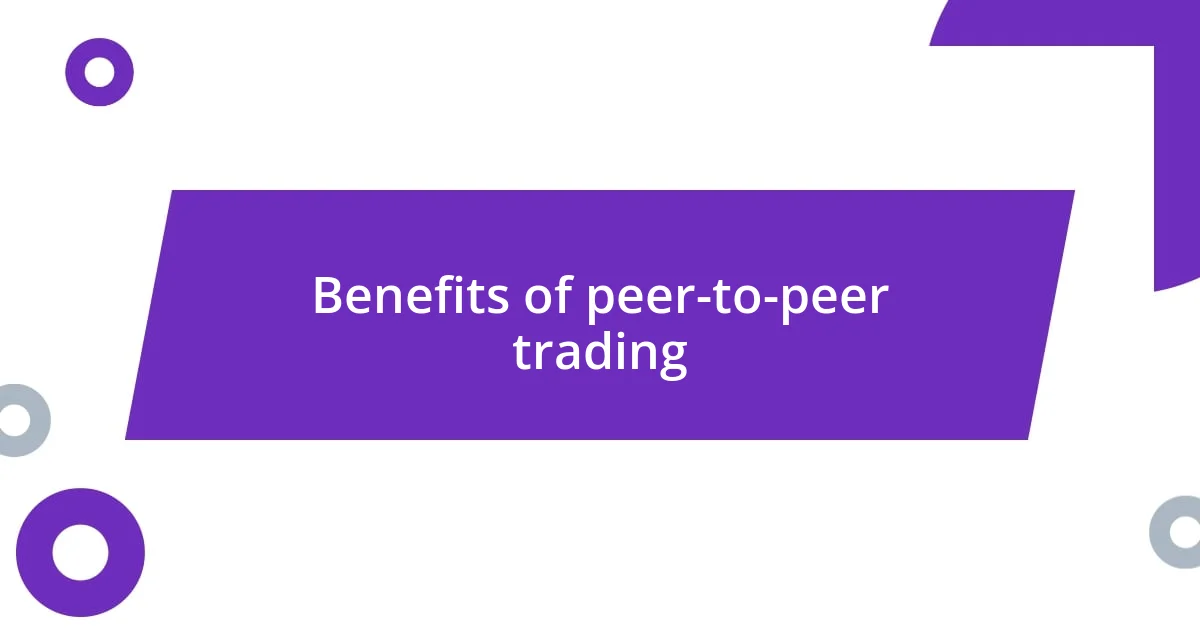
Benefits of peer-to-peer trading
The beauty of peer-to-peer trading lies in its ability to foster genuine connections. Unlike traditional platforms where transactions can feel cold and transactional, P2P trading allows for a more personal touch. I remember exchanging a handmade item with an artist in my town. We spent hours discussing our creative journeys and shared tips that enriched both our crafts. That one trade led to a lasting friendship, emphasizing how P2P links us beyond mere goods.
Here are some benefits of peer-to-peer trading:
- Cost Efficiency: By cutting out intermediaries, both buyers and sellers can save on fees.
- Flexibility: Traders can negotiate terms that suit their needs, leading to tailored deals.
- Community Building: Engaging directly fosters relationships and builds a sense of community among traders.
- Access to Unique Goods: Rare or niche items often surface through P2P exchanges, which you might not find in conventional stores.
- Empowerment: This model allows individuals to take control of their trading experiences, innovating ways to barter or negotiate.
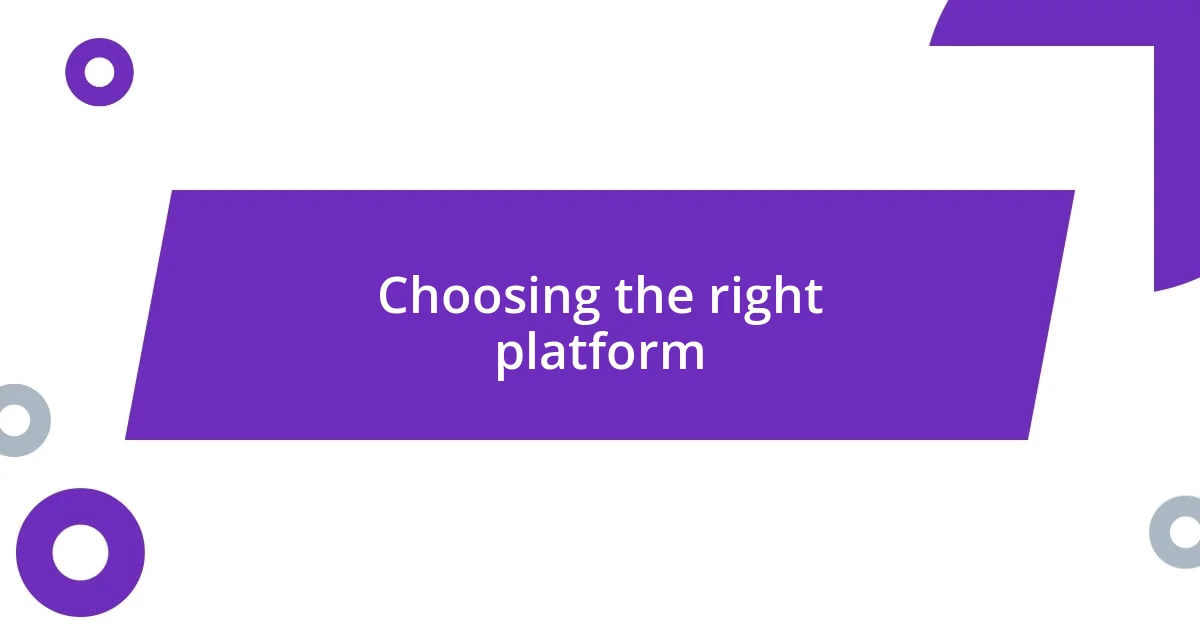
Choosing the right platform
Choosing the right platform for peer-to-peer trading is crucial. I learned this the hard way when I initially jumped into a platform that lacked adequate security measures. It was unsettling when I realized my personal information was not as protected as I thought. Ultimately, always research a platform’s reputation and the safety features it offers, as this can make or break your trading experience.
When evaluating platforms, pay close attention to user reviews and community feedback. I remember discovering a platform through a friend’s recommendation, and their positive experience made me feel confident. Engaging with other users in forums helps to build trust and ensures you’re picking a reliable platform.
Also, consider the user interface and ease of navigation. I once tried a complicated platform, and it was frustrating! A straightforward, well-designed interface allows you to focus on trading rather than figuring out how to use the site. Don’t underestimate the value of an intuitive design when choosing where to trade.
| Platform | Security Features |
|---|---|
| Platform A | Two-factor authentication, user ratings system |
| Platform B | End-to-end encryption, insurance policy for transactions |
| Platform C | No clear security measures, negative user reviews |
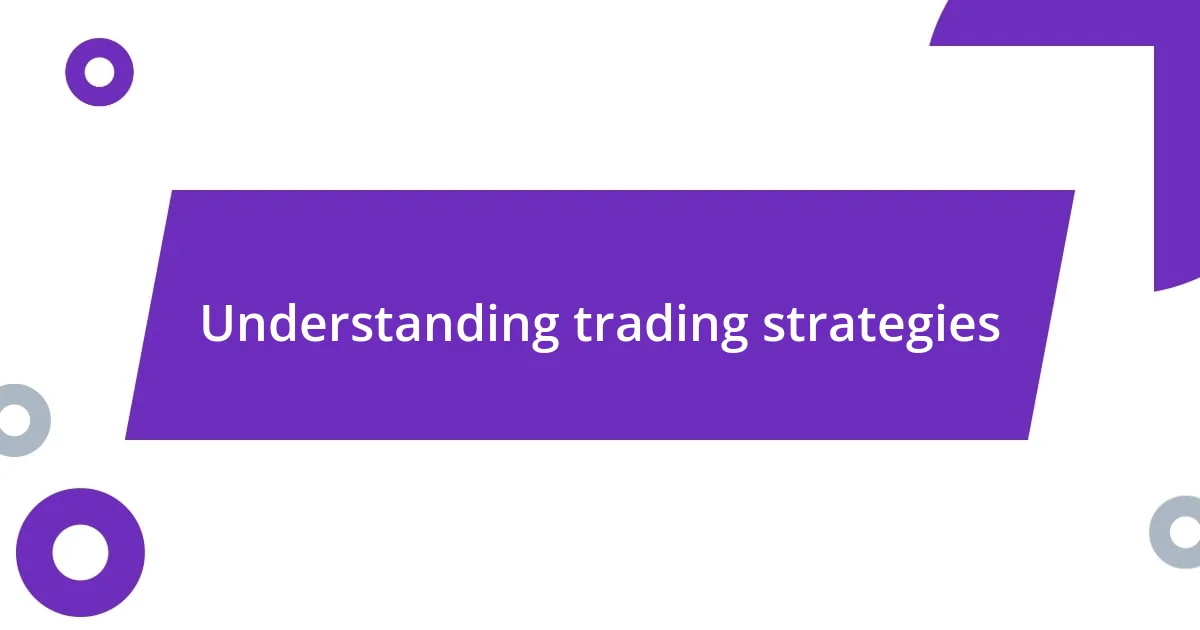
Understanding trading strategies
Understanding trading strategies is essential for navigating the often complex landscape of peer-to-peer trading. I vividly recall my first experience trying to barter a vintage vinyl record for some handmade jewelry. Initially, I was overwhelmed by the different approaches others were using. Some traders were very straightforward, while others preferred to negotiate fiercely. It made me realize that developing a strategy that aligned with my trading style was crucial to feeling comfortable and confident in my exchanges.
One effective strategy I’ve adopted is the art of timing. I learned this while trading during a local market event. By observing when foot traffic peaked, I strategically chose to approach potential trades during quieter moments. This not only allowed for more meaningful conversations but also helped me negotiate better deals. Have you ever noticed how a slight shift in timing can make a significant difference? It really can influence both the outcome and your overall trading experience.
Additionally, building relationships can be a game-changer. I once reached out to a fellow trader I had met casually at an event. We started sharing tips and resources, which led to some fantastic collaborative exchanges later on. It dawned on me that networking isn’t just about trades; it’s about creating a support system. A solid strategy isn’t merely about the transactions—it’s about fostering connections that enrich your trading journey.
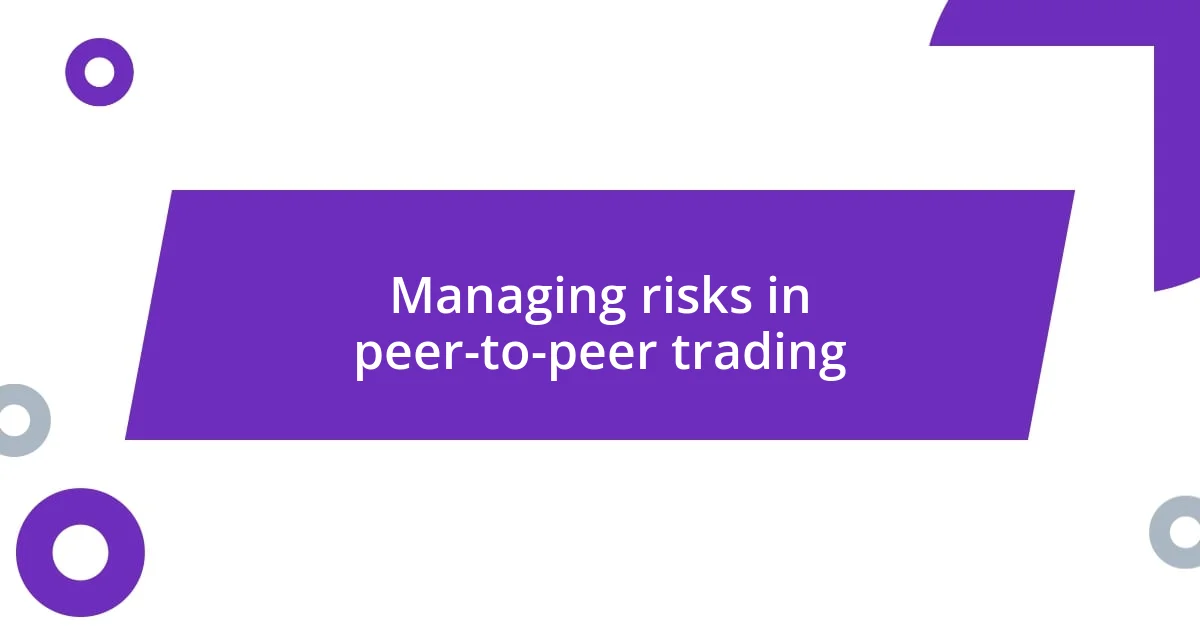
Managing risks in peer-to-peer trading
Managing risks in peer-to-peer trading demands a proactive mindset. I remember my first big trade involving some limited-edition sneakers. To mitigate risk, I made sure to verify the seller’s track record and check their past transactions. Have you ever felt nervous about not knowing who you’re dealing with? It’s an unsettling feeling, but by doing my homework, I found reassurance in the numbers, which made the experience a lot easier.
One of the most valuable lessons I learned was the importance of using escrow services during transactions. The first time I used an escrow, it felt like a safety net was placed beneath me. Knowing that my funds were protected until both sides fulfilled their part of the agreement reduced my anxiety immensely. Isn’t it comforting to know there’s a safeguard in place? This experience taught me that sometimes, taking that extra step ensures a smoother trading journey.
Lastly, I’ve learned that it’s crucial to set a personal limit on how much I’m willing to risk. There was a time I got carried away while trading electronics, thinking I could flip them for quick profits. I ended up with more gadgets than I could sell, leading to frustration and clutter. Have you ever let excitement cloud your judgment? Setting clear boundaries helps maintain balance and prevents unfortunate surprises. Remember, trading should be enjoyable—not a source of stress!
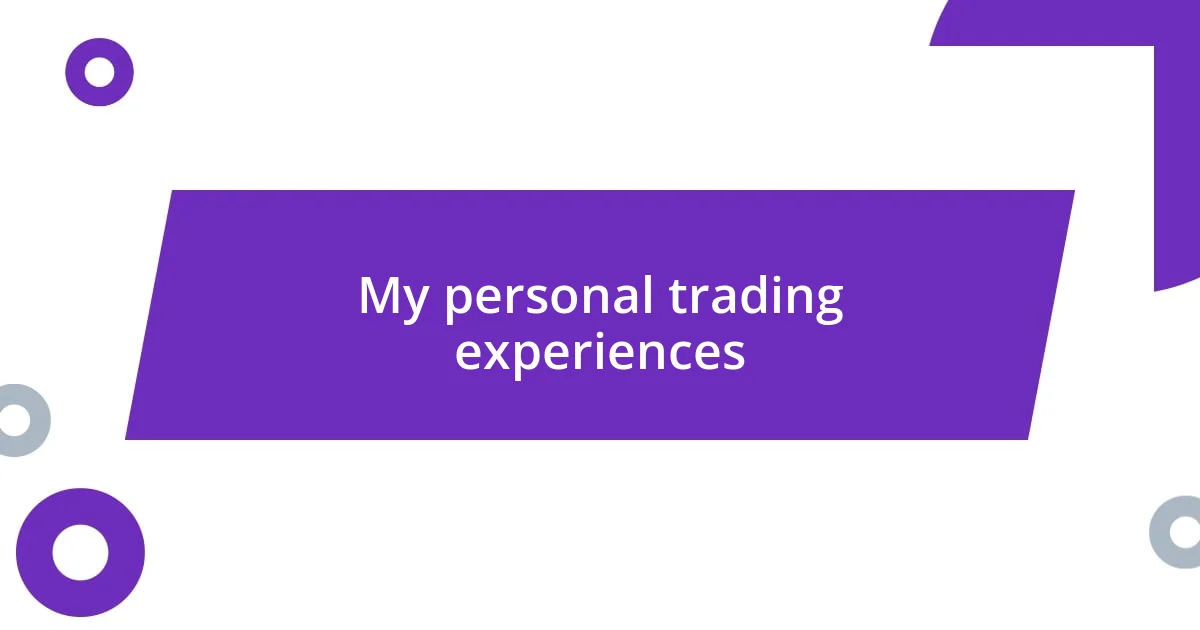
My personal trading experiences
Trading has been a real journey for me, filled with ups, downs, and plenty of learning moments. I vividly recall a trade where I was after a rare comic book. The seller seemed eager, but there was a moment of hesitation when I realized I had undervalued the item significantly. That moment taught me to always do thorough research beforehand. Have you ever felt the sting of not preparing enough? It’s a lesson that sticks with me, reminding me that knowledge is power in trading.
Another striking experience was at a swap meet where emotions were running high. I had set my sights on trading a handmade craft for a set of vintage video games. The excitement in the air was palpable, but a pinch of anxiety crept in when I noticed other traders eying the same games. I decided to get creative—proposing a unique package that included not just my craft, but also a personal touch, such as a custom postcard. It worked like a charm! That moment showed me how tapping into emotion and creativity can elevate a simple trade into something memorable. Have you ever thought about how personal touches can transform a transaction? It truly makes a difference.
Reflecting on my experiences, I can’t help but appreciate the learning curves that shaped my approach. One time, I misjudged a potential trade, thinking it was a done deal, only to find out the seller was looking for something entirely different. It felt deflating at first, but I’ve learned to pivot quickly and adapt my expectations. Trading isn’t just about the items; it’s about the conversations and connections built along the way. Isn’t it fascinating how each trade can teach us something new? That concept keeps me motivated to engage more fully in this dynamic world of peer-to-peer trading.
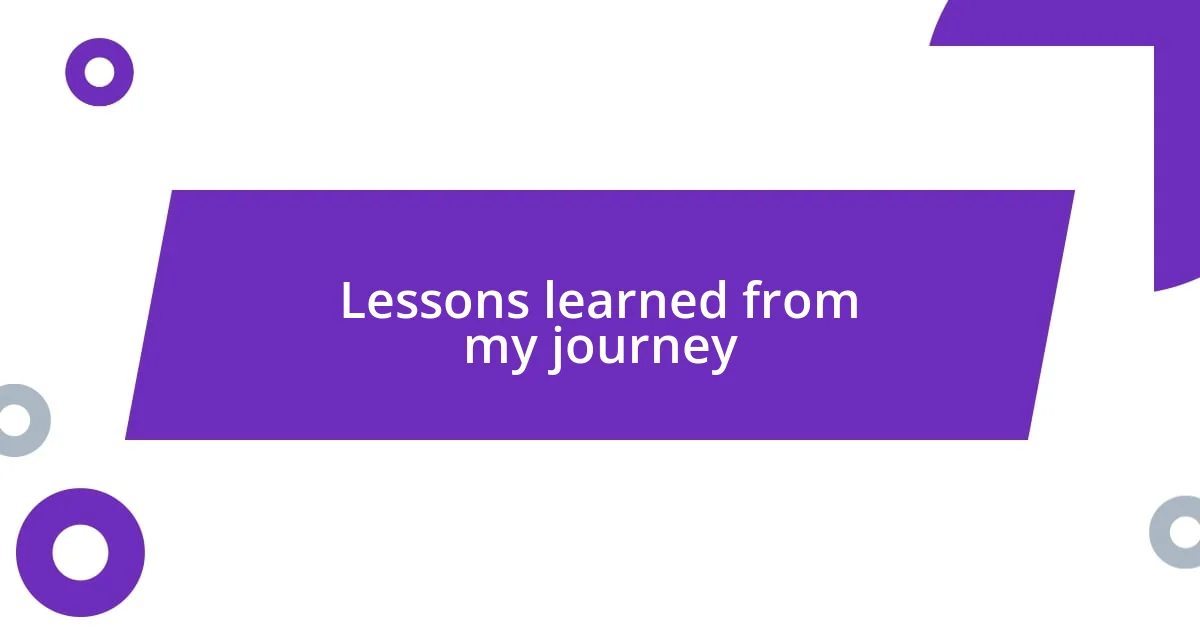
Lessons learned from my journey
Throughout my journey in peer-to-peer trading, one lesson that has resonated with me is the necessity of staying adaptable. I remember a time when I had an agreement to trade some collectible cards, but the seller backtracked at the last minute, citing they found a better offer. At first, I felt disappointed and frustrated. Have you ever had your plans unexpectedly derailed? I realized that flexibility is key in these situations; I walked away, reassessed my options, and ended up making an even better trade the next week.
Another important takeaway has been the art of communication. Working out deals can sometimes feel like a dance, and I distinctly recall a moment when I misread a seller’s tone in a chat. Instead of being clear, I floundered and left things vague, which resulted in confusion. It taught me that being direct and open about what I wanted could prevent potential miscommunication. Have you ever felt overwhelmed by someone’s indirectness? I learned that asking questions and seeking clarification not only cements the agreement but also builds rapport.
Lastly, I’ve come to appreciate the emotional aspects of trading, particularly dealing with attachment. There was a time I tried to sell an old guitar that carried sentimental value. I was initially resistant to lower my price, even when the market suggested it. It hit me that sometimes, separating emotions from business is crucial. Have you ever struggled to let go of something that meant a lot to you? This experience reminded me to evaluate items based on their worth in the marketplace, not just in my heart. Balancing emotion and practicality has since become essential in my trading decisions.

